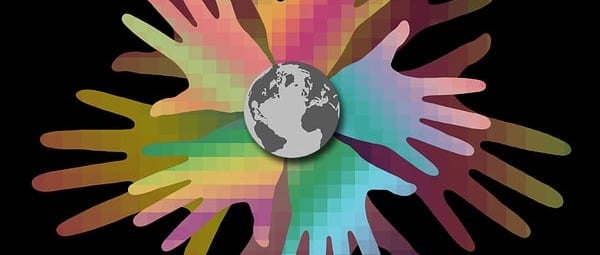Everyone Has a Story


Everyone Has a Story
by Mario A. Campanaro
On so many levels, human beings differ from one another. We all love differently, come from different families, and belong to different social groups. We're drawn to different things, have varying tastes, socio-economic backgrounds, educations, and life experiences. The world has treated us each uniquely. We were born into different generations, wear different clothes, and carry different styles. Our dietary needs and health challenges are just as unique as the rest of us.
We like differently. We dislike differently. We express anger in different ways. We laugh differently, cope differently, and carry with us different emotional triggers and defense mechanisms. We see the world through vastly different lenses, informed by our beliefs, faiths, politics, and emotional responses. The list of our differences is endless.
So, look at people. Really look. Look at their intentions. Pay attention to how they listen, how they respond to their circumstances. Watch how they overcome obstacles and strive to better their lives. Notice how specific events and environments influence their choices—how they love or hate—and ask yourself: what is the story behind that? Not just the surface story, but the deep, personal narrative that has shaped every moment of their being.
We all live life moment to moment, each of us navigating the world in our own way. And we do that because of one thing we all share: a personal history. Every person carries a story—a journey filled with experiences, relationships, challenges, and triumphs—that has led them to this very moment. Some of those experiences built us. Some broke us. Some knocked us down, and some lifted us up. But each of us has suffered, and each of us has either overcome—or is in the process of overcoming—that suffering. If we hadn’t, we wouldn’t still be here. As long as we are alive, we are persevering.
And in that history—our history—we are the most important character. Because we lived it. Or are still living it. We experienced it, felt it, celebrated it, or struggled through it. We carried the weight and the wonder of our lives firsthand. That story—your story—lives inside you. It’s in your body, your mind, your emotional memory, even your spirit.
When we understand this truth, we begin to see that human beings are doing the best they can, moment to moment, trying to improve their present based on everything they’ve learned and all the coping mechanisms they’ve developed along the way. Until life becomes so intense or unbearable that new paths must be discovered.
We must always remember: our craft as actors is, has been, and always will be formed by life itself. Some may call us storytellers. I say we are story-livers. We are here to reveal the deepest truths of the human condition—not for performance’s sake, but in service to the writer, the character, the audience, and the sacred art of storytelling.
We have to turn to life to understand our work. Life is our original source. Within this moment—this “here and now”—live all the answers to the questions we must ask as actors: How do we function? Why do people act the way they do? What is at the root of behavior? And the answer is always: history.
Actors must use that knowledge—our own histories and a broader understanding of human history—to bring depth and truth to our work. But that only happens if the desire to learn and understand is alive in both our minds and our hearts.
There must always be curiosity burning inside us: Why? What happened? What’s the story behind this person’s present state of being? What’s behind their actions, their relationships, their habits, their trauma, their joy? Why is this person who they are? Who is the person behind the person?
By asking these questions, we begin to see that every human being—no matter how likable or unlikable, lovable or unlovable, kind or unkind, reprehensible or compassionate, saint-like or seemingly evil—has a story that formed their behavior, shaped their thoughts, and influenced their emotional, mental, and even spiritual patterns.
These realizations don’t just help us understand the characters we play. They help us understand ourselves—our own motivations, our own emotional backbone, our own behavior in this wild, unpredictable thing called life.
So, if we understand this truth about real human beings, why wouldn’t we apply that same level of insight, compassion, and respect to the characters we are entrusted to portray? When we do, we remove judgment from the process. We approach our characters with humanity, care, empathy, and meticulous attention to detail. And that is gold for the actor.
It brings meaning to our choices, fuels our motivation, connects us to the heart and soul of the work. It grounds us in truth. It allows us to pursue needs, overcome obstacles, take action, and reveal the inner lives of our characters in ways that are alive, respectful, and deeply moving.
Because when we act from a place of understanding—not just of the script, but of life itself—we don’t just play roles.
We live them.
Copyright © 2025 Mario A. Campanaro, All rights reserved."


